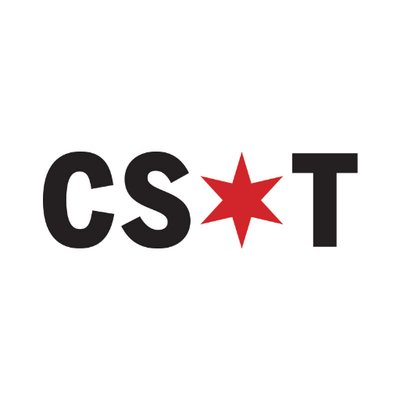



As thousands of migrants face evictions from Chicago shelters, more than a dozen City Council members have addressed a letter to Mayor Brandon Johnson condemning the policy and demanding the administration improve its handling of the influx of asylum-seekers.
“The 60-day eviction policy poses a significant threat to the health and safety of new arrivals,” the letter reads, referring to the Johnson administration’s shelter-stay limit which was due to take effect mid-January but delayed for the cold.
Nearly 2,000 people are set to be evicted if the policy is enforced as planned Feb. 1. That number is expected to grow to around 6,000 people by the following week. Evicted migrants would be able to reapply for shelter.
Those signing the letter say the city should at least delay evictions until it’s warm and instead focus on helping migrants become independent.
“I don’t think it should happen, but it’s very clear it shouldn’t happen during the winter,” said Ald. Andre Vasquez (40th), chairman of the Committee on Immigrant and Refugee Rights.
“If the policy were to continue and people don’t have a place to go and they don’t have work authorization, it will contribute to the homelessness problem,” he said, “adding to the people living in parks and under viaducts.”
Johnson’s administration has defended the policy as a way of motivating migrants to become independent. The administration did not immediately respond to requests for comment.
Migrants will be able to reapply for shelter space at the city’s designated “landing zone” for new arrivals at 800 S. Desplaines St., where hundreds of migrants were previously sleeping aboard CTA buses.
Fear of being evicted has caused tremendous anxiety among migrants in shelters.
One mother at a shelter whose family arrived too late to access the state rental assistance program feared that — without being able to legally work and without knowing someone else in Chicago — they would end up on the street.
“It’s clear to me that we’ll get no type of help here,” she said, asking her name not be used for fear of retaliation.
Help with work authorizations has also been limited.
Ald. Bill Conway (34th), another signatory, has organized legal aid clinics for hundreds of migrants in downtown shelters to facilitate that resettlement.
However, that process takes a long time — often longer than 60 days — and isn’t an option for everyone.
The alderperson called for a clearer plan than the patchwork assistance many migrants have received so far.
The letter also calls for improving shelter conditions, alleging many migrants find the food inedible, there are rodent and bed bug infestations, and medical care has been scarce.
The death of Jean Carlos “Jeremías” Martinez Rivero in December heightened scrutiny of shelter conditions.
Carrying out the evictions will reinforce the kind of desperate mindset volunteers like Jaime Groth Searle have been trying to help calm.
“They’re not in a headspace to think about safety, they’re thinking about where am I going to get my next meal, keep my kids warm, get my next $50,” Groth Searle said. “We’re trying to get them out of survival mode and get back to going to school, seeing a doctor — those normal things people do.”
Groth Searle volunteers outside the Pilsen shelter and said without more robust case work, many migrants are panicking as they near the end of their stay and don’t know what to do.
That period in shelters could even be an opportunity, Ald. Gil Villegas (36th) said, for the city and state to provide educational help, like English classes.
“They’re not going anywhere,” Villegas said. “Let’s figure out some way to assimilate them, get them out of the shadows of being undocumented and allow them to be participants in our society.”
The Northwest Side alderman said shelter openings could be used to develop community centers, as is the plan with at least one North Side shelter.
“Here’s an opportunity to make some investments that, long term, are going to pay dividends for Chicago,” he said.
“Unfortunately the previous administration did not take this up,” Villegas said. “But I think the current one could.”
Michael Loria is a staff reporter for the Chicago Sun-Times via Report for America, a not-for-profit journalism program that aims to bolster the paper’s coverage of communities on the South Side and West Side.
